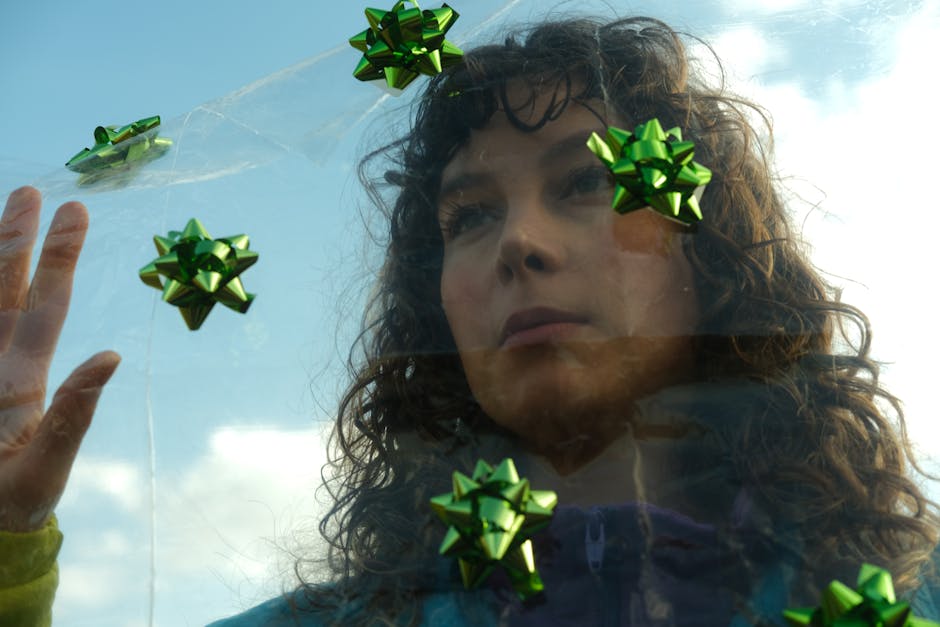My Experience with Historical Podcasts (bringing the Past to Life).
My Experience with Historical Podcasts (bringing the Past to Life)
For years, history felt like a collection of dusty textbooks, a timeline of names and dates to memorize. It was a subject I appreciated for its importance but struggled to connect with on a visceral level. The sheer volume of information often felt overwhelming, a static parade of facts rather than a dynamic tapestry of human endeavor. Dates blurred, names became interchangeable, and the profound impact of past events often remained abstract. I yearned for a deeper understanding, a way to truly grasp the motivations, the triumphs, and the tragedies that shaped our world, but the traditional methods often left me feeling detached. Then, something shifted. I stumbled upon historical podcasts, and my perception of the past was utterly transformed. It wasn’t just about learning facts anymore; it was about experiencing stories, feeling the weight of decisions, and understanding the human drama that unfolded centuries ago. This isn’t a generic ode to podcasts; it’s a deeply personal account of how this audio medium truly brought the past to life for me, weaving narratives that resonated far beyond the classroom.
From Stale Chronicles to Vivid Soundscapes: My Awakening to Audio History
My initial forays into historical podcasts were tentative. I expected dry lectures, perhaps a slightly more engaging version of an audiobook. What I found, however, was an entirely different beast. The best historical podcasts didn’t just narrate events; they *recreated* them. Through expert storytelling, carefully selected sound effects, and the judicious use of historical documents read aloud, they built a world that was, for the first time, truly tangible in my mind’s ear. I wasn’t just hearing about the Roman Empire; I was hearing the clamor of the forum, the distant bugle calls, the hushed whispers of political intrigue. The rustle of ancient scrolls, the distant clash of swords, the impassioned speeches of leaders – these elements, subtle yet powerful, stitched together a sensory experience. This wasn’t merely information delivery; it was an invitation to step through a portal, to become an auditory witness to history unfolding.
The Initial Spark: Discovering Depth Beyond the Page
The transition from reading history to listening to it was profound. The linearity of a book often meant I’d skip ahead or skim sections, but with audio, I was compelled to follow the narrative at its own pace. This enforced patience allowed for a deeper absorption of details and nuances I might have otherwise missed. It was like having a personal historian whispering tales directly into my ear, guiding me through complex events with a passion that was infectious. I remember my first truly captivating experience: a series detailing the intricacies of the Punic Wars. Instead of memorizing dates and battle formations, I was drawn into the strategic brilliance of Hannibal, the resilience of Rome, and the sheer desperation on both sides. The narrator’s tone conveyed the gravity of each decision, the immense human cost, and the long-term consequences, turning what I once considered a dry military conflict into a gripping epic. This experience quickly made me realize that the narrative power of audio was unmatched in its ability to captivate and educate simultaneously.
The Art of Narrative Weaving: How Stories Resurrect the Past
What truly sets historical podcasts apart in their ability to bring the past to life is their mastery of narrative. Unlike a textbook, which often presents facts in a chronological but somewhat detached manner, a well-crafted podcast builds a story. It introduces characters, develops their motivations, presents conflicts, and explores resolutions. It’s akin to listening to a compelling drama unfold, except the characters are historical figures and the plot points are real events. They often employ techniques borrowed from fiction, such as foreshadowing, cliffhangers, and character arcs, to maintain engagement. This approach transforms abstract historical periods into vibrant, relatable human experiences. I’ve found myself empathizing deeply with figures I once only knew as names on a page, understanding their dilemmas and choices in the context of their time, rather than judging them by modern standards.
Unearthing Human Motives and Context
The best historical podcasts excel at peeling back the layers of historical events to reveal the underlying human motivations. They don’t just state that a certain battle happened; they explore *why* it happened, the political machinations, the personal ambitions, the economic pressures, and the cultural beliefs that led to it. They delve into the lives of ordinary people as much as emperors and generals, painting a holistic picture of society. For instance, a podcast might dedicate an entire episode not to a king’s reign, but to the everyday life of a peasant during that era, or the struggles of a specific social movement. This contextual richness is what makes the past truly resonate, allowing me to connect historical actions to universal human experiences like love, loss, ambition, and fear. It transforms history from a series of isolated incidents into an interconnected web of cause and effect, where every decision, big or small, ripples through time.
My Personal Pantheon of Auditory Historians: Podcasts That Shaped My View
Over the years, I’ve developed a deep appreciation for specific podcasts and their creators who have consistently delivered exceptional historical storytelling. These aren’t just information sources; they are guides, storytellers, and often, passionate educators who have dedicated themselves to making the past accessible and utterly compelling.

The Epic Narratives: Dan Carlin’s Immersive Worlds
Perhaps no other podcast has had a greater impact on my historical perspective than Dan Carlin’s Hardcore History. Carlin doesn’t just narrate; he performs. His multi-hour “blitz” episodes, sometimes stretching to six or seven hours, are less like podcasts and more like meticulously researched audio documentaries. He has a unique ability to convey the sheer brutality, scale, and psychological impact of historical events. Listening to his series on the First World War, “Blueprint for Armageddon,” I didn’t just learn about trench warfare; I felt the claustrophobia, heard the distant thud of artillery, and understood the profound, existential horror that gripped an entire generation. Carlin uses primary source quotes, dramatic pauses, and vivid descriptions to transport the listener directly into the heart of the action, making the past feel terrifyingly immediate and real. It’s a masterclass in emotional engagement with historical material.
The Detailed Sagas: Mike Duncan’s Revolutionary Chronicles
Another monumental influence has been Mike Duncan, first with The History of Rome and later with Revolutions. Where Carlin offers sweeping, high-intensity narratives, Duncan provides meticulous, chapter-by-chapter accounts. His approach is like reading an incredibly well-researched and engaging history book, but delivered directly into your ears. The History of Rome, spanning over 170 episodes, covered the entire Roman Empire from its mythical founding to its final collapse, providing an unparalleled depth of understanding of political systems, societal changes, and the lives of emperors and commoners alike. Revolutions, in turn, systematically breaks down major revolutionary movements, from the English Civil War to the Russian Revolution. Duncan’s strength lies in his clear, concise explanations of complex political and social dynamics, making intricate historical processes digestible and utterly fascinating. His consistent, weekly releases built a habit of historical engagement that became a core part of my routine.
The Unforeseen Benefits: Beyond Mere Factual Recall
While the primary benefit of historical podcasts is undeniably the acquisition of knowledge, my journey has revealed a multitude of other, less obvious advantages that have enriched my life in unexpected ways.
Cultivating Critical Thinking and Nuance
Engaging with diverse historical narratives has significantly sharpened my critical thinking skills. Podcasts often present conflicting interpretations of events or challenge commonly held beliefs, forcing me to evaluate evidence, consider different perspectives, and form my own informed opinions. This isn’t about memorizing a single “truth” but understanding the complexities and ambiguities inherent in historical inquiry. For example, listening to multiple accounts of a controversial figure allowed me to move beyond simplistic judgments and appreciate the historical context that shaped their actions, fostering a more nuanced understanding of human behavior and societal forces.
Fostering Empathy and Global Awareness
By immersing myself in the lives and experiences of people from different eras and cultures, I’ve developed a profound sense of empathy. Hearing the stories of struggle, resilience, innovation, and suffering from various parts of the world has broadened my perspective and fostered a deeper appreciation for the human condition. It connects me to a global heritage, making me realize how interconnected our present is with a multitude of pasts. This has translated into a greater understanding of current geopolitical events and cultural differences, as I can often trace their roots back through historical narratives.
Embarking on Your Own Auditory Historical Journey: My Tips
For anyone looking to dive into the rich world of historical podcasts, here are a few insights from my own experience that might help you find your footing and maximize your listening pleasure.
Finding Your Historical Niche
Don’t feel obligated to start with a grand, multi-series epic if that doesn’t immediately appeal. Begin with what genuinely fascinates you. Are you intrigued by ancient civilizations, medieval monarchies, specific wars, or the history of science and technology? There’s a podcast for almost every niche. Use podcast directories’ search functions with specific keywords, and don’t be afraid to sample several shows before committing to one. Many podcasts offer introductory episodes or short series that are perfect for testing the waters. My own journey started with a fascination for Roman history, which then spiraled into an interest in revolutions, and eventually, a broader appreciation for global historical narratives.
Embracing Diverse Storytelling Styles
Just as there are different types of history books, there are varied podcast styles. Some are deeply academic, others more conversational, and some even incorporate dramatic readings or interviews. Experiment to




Post Comment